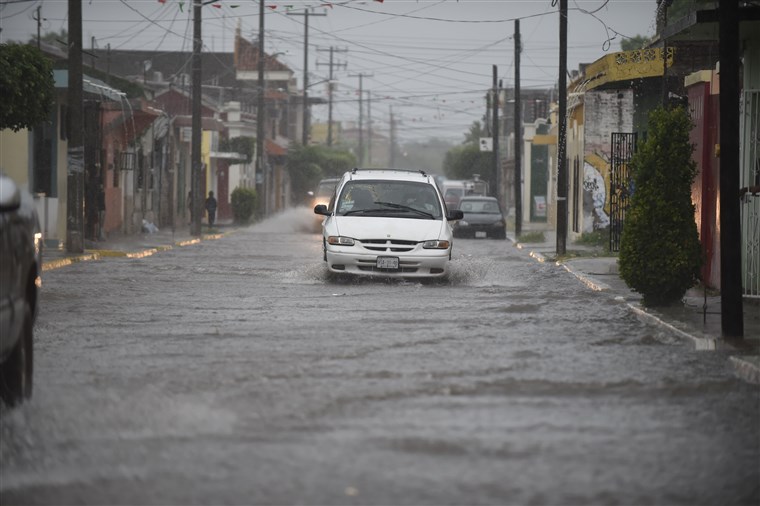When Amadeo Ramos went to bed Tuesday night, nine sturdy metal tables were fixed to the concrete floor of his seafood restaurant just off the boardwalk of the Mexican fishing village of Teacapan.
By the time Hurricane Willa had torn through the village the next morning, they were nearly all gone.
“There were nine tables here,” said Ramos, pointing to an empty space in his El Bucanero restaurant where customers would eat shrimp ceviche washed down with beer. “Only two are still here. The others were broken to pieces and flew away.”
Willa ripped into Teacapan as a Category 3 hurricane, one of the strongest to hit Mexico’s Pacific coast in years, prying off roofs with winds of up to 120 miles per hour (193 km per hour).
No deaths were reported thanks to mass evacuations, but the storm left the streets of Teacapan a muddy mess.
Trees still standing were littered with debris, including pieces of twisted metal roofing. The wall of the boardwalk was blasted apart, with large chunks of concrete scattered on an adjacent road by a wrecked fishing boat that the hurricane hurled out of the water.
Teacapan lies about 70 miles (110 km) south of the beach resort of Mazatlan, and the village’s few thousand local residents were moved to shelters inland a day before Willa struck.
Ramos, one of the first to return, quickly named climate change as the main culprit.
“Before, a long time would pass before anything like this, but now these dangerous storms happen more often and cause this kind of damage,” the 54-year-old said.
After Willa, the two-lane highway leading to Teacapan was littered with more than a hundred fallen electrical poles, their thick metal power lines covering much of the roadway.
The poles caused long waits for the buses transporting residents back to what remained of their homes. Distraught, they pressed their faces against the windows, looking out.
Fishing villages in this part of the northwestern state of Sinaloa are often associated with Mexican drug traffickers, as boats are used to pick up illicit shipments dropped by plane in the sea along stretches of mostly empty coastline, locals said.
The area has long been regarded as the turf of notorious drug kingpin Joaquin “El Chapo” Guzman’s Sinaloa Cartel. Captured in 2016, Guzman is now awaiting trial in New York.
But in the aftermath of Hurricane Willa, residents said the normally omnipresent cartel was forced to step back and allow local officials to re-establish basic services.
Ramos thinks it will take weeks before power is fully restored, and he wondered whether it might be time to move elsewhere.
“You think about doing something else, or selling to someone who really wants to make the effort,” he said, his voice tailing off. Then, in the distance, he spotted a piece of his restaurant’s roof, and marched off to grab it.
“I think that bit can be rescued.”






